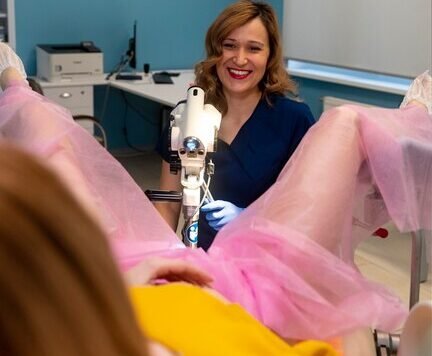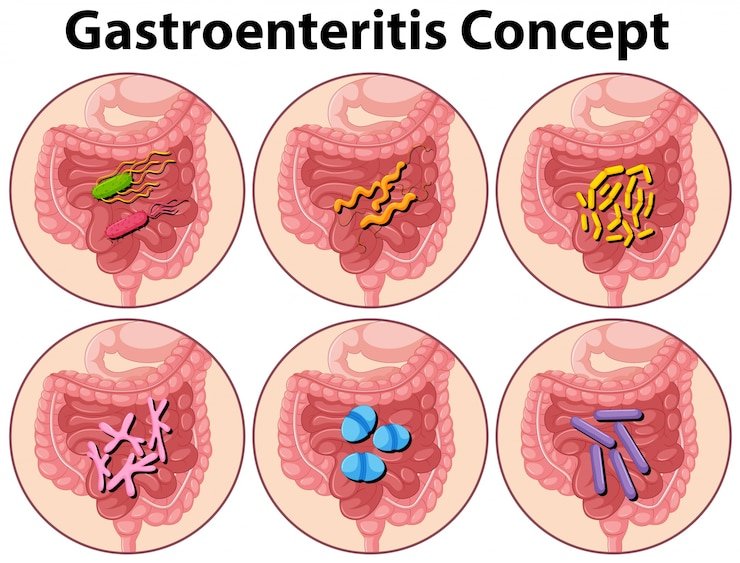How to Choose the Best Gynecologic Oncologist in Panipat
Selecting the Best Gynecologic Oncologist in Panipat is an important and often life-changing decision for women facing cancers of the reproductive organs. Whether you’ve been diagnosed with ovarian, cervical, uterine, or another form of gynecologic cancer, the specialist you choose will play a significant role in your treatment journey. A gynecologic oncologist is a physician trained to treat these cancers through surgery, chemotherapy, radiation therapy, and other specialized treatments
This guide will help you make an informed decision when choosing the best gynecologic oncologist, ensuring you receive expert care tailored to your needs.
1. Seek Recommendations and Referrals
Start by seeking recommendations from trusted sources such as your primary care doctor, gynecologist, or other healthcare providers. They may have established relationships with oncologists and can refer you to specialists with a track record of successful treatments. Additionally, you can ask for recommendations from friends or family members who have undergone treatment for gynecologic cancers.
Online resources and directories can also help you identify reputable specialists in your area. The Jatindera Hospital team can provide referrals to top gynecologic oncologists, offering both personalized and expert care.
2. Evaluate the Oncologist’s Qualifications and Credentials
One of the most critical factors in choosing the right gynecologic oncologist is their qualifications and credentials. A specialist in this field should have completed rigorous training in both obstetrics and gynecology, followed by additional fellowship training in gynecologic oncology. This extensive education ensures that the doctor has the specialized knowledge required to treat complex gynecologic cancers.
When evaluating an oncologist, check if they are board-certified in gynecologic oncology. Board certification indicates that the doctor has met national standards and maintains the highest level of professional care. Also, review their years of experience, particularly in treating the specific type of cancer you’ve been diagnosed with. The more experience the oncologist has, the better their ability to handle complications and unexpected situations during treatment.
3. Research the Oncologist’s Expertise in Specific Treatments
Gynecologic cancers can be treated using various approaches, including surgery, chemotherapy, and radiation therapy. The best oncologist for you should have substantial experience in administering the treatments best suited for your cancer type. For example, some oncologists specialize in minimally invasive surgery techniques, which can lead to faster recovery times and fewer complications. Others may focus on advanced chemotherapy protocols or innovative therapies like immunotherapy.
It’s essential to discuss the oncologist’s approach to treatment and assess whether their specialization aligns with your needs. If you’re interested in clinical trials or emerging treatment options, ask whether the oncologist is involved in research or offers access to clinical trials that might be appropriate for you.
4. Consider the Hospital or Cancer Center
The hospital or cancer center where the oncologist practices can significantly impact the quality of care you receive. Top-tier facilities are often equipped with the latest technology, comprehensive cancer care programs, and multidisciplinary teams of specialists who work together to develop personalized treatment plans.
When choosing a gynecologic oncologist, consider whether they are affiliated with a hospital or cancer center that is recognized for excellence in cancer treatment. Ideally, the facility should have accreditations from reputable organizations such as the National Cancer Institute (NCI) or the American College of Surgeons Commission on Cancer (CoC). Hospitals like Jatindera Hospital provide advanced care with cutting-edge technology and a dedicated team of oncology experts.
5. Evaluate Communication Style and Patient Rapport
Effective communication between you and your gynecologic oncologist is essential throughout your cancer treatment journey. During your initial consultation, assess the doctor’s communication style and their ability to explain complex medical information in a way that is easy to understand. The oncologist should be patient, attentive to your concerns, and open to answering all your questions.
You’ll want to choose a doctor who listens to you, values your input, and respects your preferences in treatment decisions. An oncologist who makes you feel comfortable and supported can help reduce anxiety and build trust during this challenging time.
6. Check Availability and Accessibility
Gynecologic cancer treatment often requires regular appointments and follow-up visits, so it’s important to choose a doctor who is accessible and available when needed. Consider factors like:
- Location: Is the oncologist’s office or hospital convenient for you to reach? Frequent travel for appointments can add stress, especially during treatment.
- Scheduling: How easy is it to schedule appointments? Does the oncologist have flexible availability that accommodates your needs?
- Emergency Access: In case of complications or emergencies, does the oncologist or their team offer timely support or access to care?
Having a specialist who is readily accessible can make a significant difference in your overall treatment experience and peace of mind.
7. Consider the Support Services Provided
Cancer treatment can be physically and emotionally demanding. The best gynecologic oncologists in paniapt typically work within comprehensive cancer centers that provide a range of support services designed to address both the physical and emotional aspects of cancer care. These services may include:
- Nutritional Counseling: Helping you manage the side effects of treatment and maintain a healthy diet.
- Psychosocial Support: Providing counseling or support groups to help you cope with the emotional toll of cancer.
- Rehabilitation Services: Offering physical therapy or other rehabilitation programs to support recovery.
- Palliative Care: Ensuring that pain management and symptom relief are incorporated into your treatment plan.
These additional services can significantly enhance your quality of life during treatment. At Jatindera Hospital, patients have access to a wide range of supportive services that are tailored to their individual needs.
8. Review Insurance Coverage and Financial Considerations
Finally, the financial aspect of your cancer treatment is an important consideration. The cost of gynecologic oncology care can vary widely depending on the hospital, treatment plan, and length of care. Before choosing an oncologist, check whether they accept your insurance plan and discuss the costs of various treatment options.
Some clinics offer financial counseling services to help patients navigate insurance coverage and payment plans. Ensuring that you are fully aware of your financial obligations upfront can help you avoid unexpected expenses later in the treatment process.
Conclusion
Choosing the best gynecologic oncologist in Panipat requires careful evaluation of several key factors, including the doctor’s qualifications, experience, communication style, and the quality of the hospital or cancer center they are affiliated with. By thoroughly researching and considering these aspects, you can find an oncologist who will provide expert care and support throughout your cancer journey. Jatindera Hospital offers a team of highly qualified gynecologic oncologists, backed by advanced facilities and comprehensive care, to ensure you receive the best treatment for your condition.







